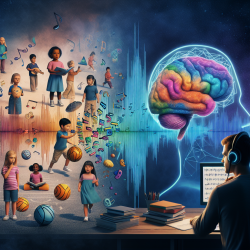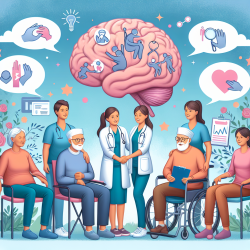Boost ADHD Students' Cognitive and Academic Performance with This Simple Technique
As an educator or therapist, you’re always looking for effective ways to support your students, especially those with ADHD. The research article titled Persistent Childhood Primitive Reflex Reduction Effects on Cognitive, Sensorimotor, and Academic Performance in ADHD presents some promising findings that could significantly improve your practice. Let's delve into how you can implement these findings to help your students excel.
Understanding Primitive Reflexes
Primitive reflexes are automatic movements that are present at birth and typically fade as the brain matures. However, in children with ADHD, these reflexes can persist, potentially affecting their cognitive and motor skills. The study highlights that reducing these retained primitive reflexes (RPRs) can lead to significant improvements in cognitive, sensorimotor, and academic performance.
Key Findings from the Study
- Significant reduction in RPRs after a 12-week intervention program.
- Improvements in motor skills and cognitive tasks measured by the Wechsler Wide Range Achievement Test.
- 7% increase in listening comprehension and a 5% increase in mathematical problem-solving abilities.
Implementing the Findings in Your Practice
Here are some actionable steps to integrate these findings into your therapy sessions:
- Incorporate Reflex Inhibition Exercises: Develop a program that includes exercises specifically designed to inhibit primitive reflexes. These could be simple activities like hand-to-hand clapping, synchronized with a metronome.
- Use Synchronized Metronome Training (SMT): SMT involves training individuals to match varying beats, which can help improve timing and coordination. This technique was shown to significantly enhance motor skills in the study.
- Engage in Dichotic Listening (DL) Exercises: DL tasks involve presenting different auditory stimuli to each ear simultaneously, which can improve selective auditory attention and hemispheric lateralization of speech sound perception.
Encouraging Further Research
While the study provides compelling evidence, further research is always beneficial. Encourage your colleagues and other practitioners to explore the relationship between RPRs and cognitive development in ADHD. Collaborative efforts can lead to more refined techniques and better outcomes for students.
To read the original research paper, please follow this link: Persistent Childhood Primitive Reflex Reduction Effects on Cognitive, Sensorimotor, and Academic Performance in ADHD.
By incorporating these strategies into your practice, you can make a meaningful difference in the lives of students with ADHD, helping them achieve their full potential.










